Our Changemakers Programme was designed to find innovative ways to bring our Purpose to life by building people’s financial resilience and helping everyone move fairly to a sustainable world.
From insight to idea to impact, we work closely with our Changemakers to encourage and accelerate inspired thinking. They have access to our knowledge and expertise, tailored business support and funding.
Working with our partner, the School for Social Entrepreneurs, we create, develop, and invest in bold ideas and sustainable solutions from ambitious social enterprises across the UK and Ireland.
Meet the Ireland-based Changemakers
At Royal London Ireland , our social impact work is how we help drive meaningful change for wider society. Through our Changemakers Programme, our parent company supports a total of 20 social enterprises focused on our Purpose impact areas of helping to build financial resilience or moving fairly to a sustainable world. This year, we sought Changemakers from Ireland and the UK who are addressing our two purpose impact areas:
- Building financial resilience; or
- Enabling a fair and inclusive transition to net zero.
We know that reaching net zero will have potentially positive and negative social impacts – including job changes and losses, and effects on local communities – and that these won’t be felt equally across society.
We’re thrilled to welcome two new Irish-based social enterprises in 2025, who consider the social issues and the impact on people and communities as we move towards net zero.
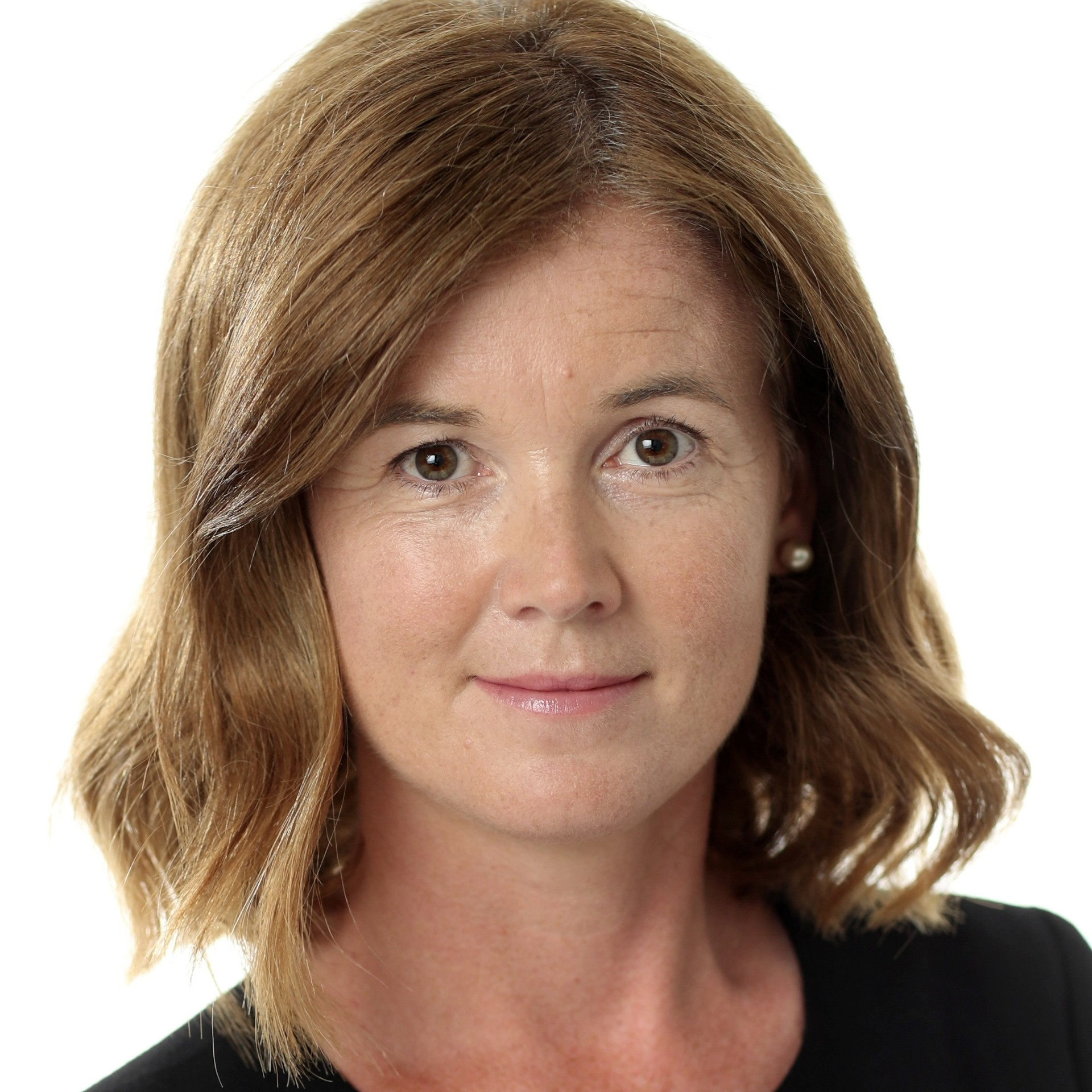
Ava Housing
Michelle Moore
Ava Housing is an Irish, not-for-profit initiative that supports older homeowners to stay in their homes for longer, reducing the need for more costly forms of care. They help older people re-design their homes to better meet their needs into the future and create a space that can be rented out. The homeowner retains complete ownership of their home and controls who they share their home with. The Ava Housing initiative provides warmer homes, extra income and peace of mind.
The Ava Housing model works well for people in their 60s and early 70s who are living alone, it helps them to plan ahead so they can live in their homes and communities for longer. The scheme further enhances the financial resilience of older homeowners by leveraging their main asset, their home, to generate rental income. It also reduces social isolation levels and promotes a more sustainable use of existing housing stock.
Ava Housing was founded to offer older people an option when their house is too big but filled with memories. It’s for those who want to upgrade their home to better suit their needs but lack the financial means and don’t know where to start.
It’s also for those who are open to using the spare capacity in their homes to welcome another person to share their home, in a way that still allows them to live very independently and autonomously and helps them feel safer and more secure.
I am excited for the opportunity to work with the Changemakers Programme to further build on Ava Housing’s track record to enhance the lives and financial resilience of many more people.
Michelle Moore, Founder of AVA Housing
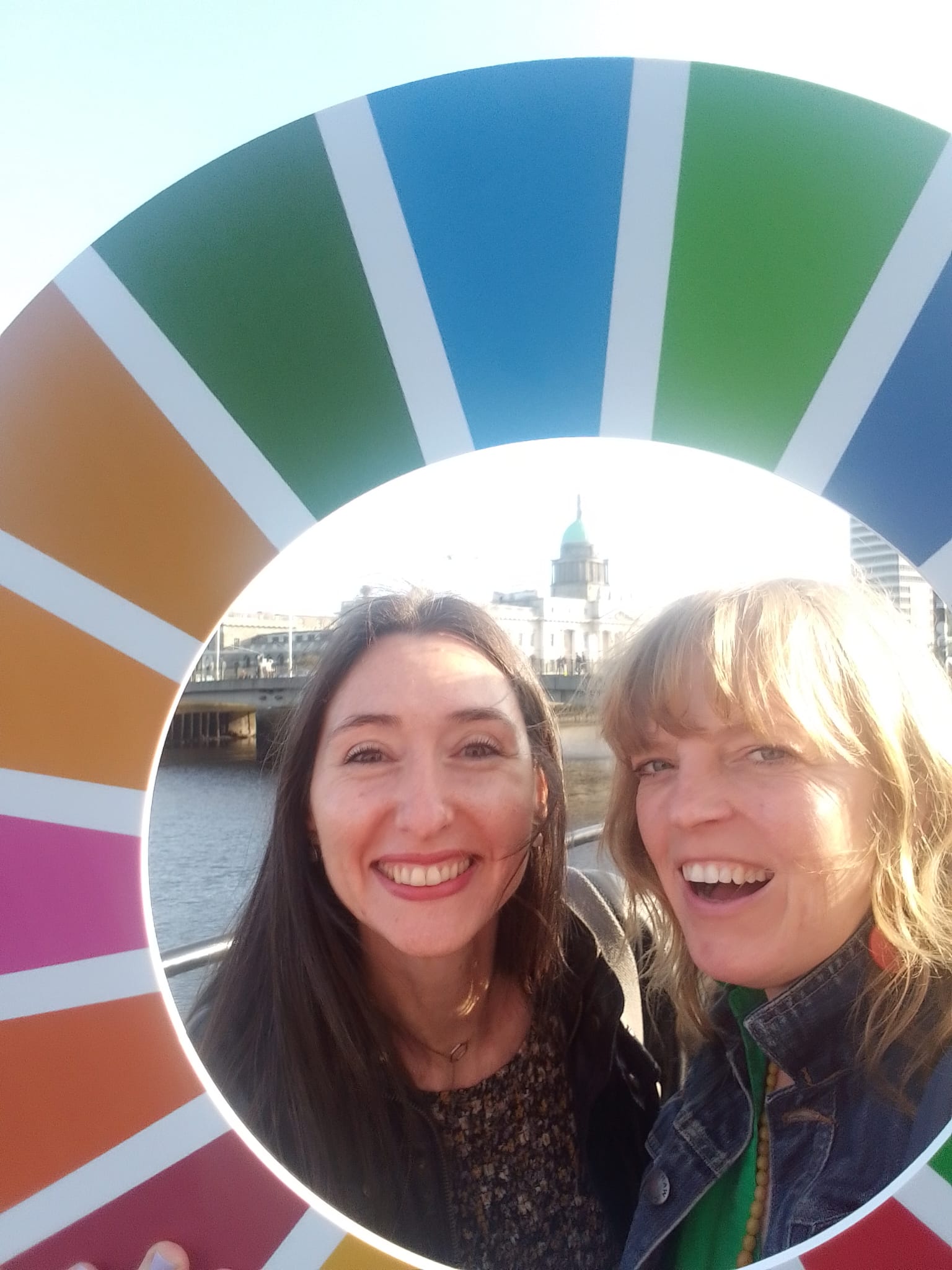
The Sustainable Life School
Nathalie Pavone & Diane O'Connor
While climate action is a serious business, The Sustainable Life School (SLS) makes climate action simple and sociable. This female-led social enterprise in Dublin helps people live more sustainably.
Working with businesses and communities, SLS delivers accessible programs, workshops, eco-initiatives, and events that inspire change in relatable areas like waste, food, fashion, energy, and travel, that can collectively lead to bigger impact.
Find out more about The Sustainable Life School
LinkedIn / Website / Instagram
We are passionate about empowering people to make sustainable living part of the climate solution, creating a movement that is good for people and the planet. We are at a critical phase of our social enterprise journey, we know that our services are impactful but as a young social enterprise we still have a lot to learn.
We are thrilled about being part of the Royal London Change Makers programme, we hope it will be the key step that will help us scale our business and impact. We look forward to connecting with other like minded social enterprises as this has always proven invaluable to us so far.
Nathalie Pavone & Diane O'Connor Co-Founders
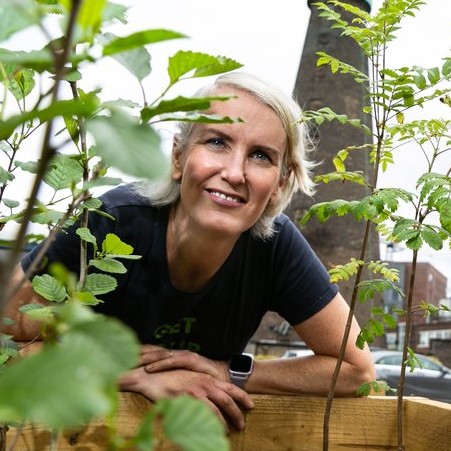
Pocket Forests
Catherine Cleary
Pocket Forests are a Dublin-based social enterprise that reconnect people with nature and help to tackle the biodiversity crisis by bringing the environmental and mental health benefits of tree planting to nature-deprived communities. They work with communities, using food waste to regenerate soil and plant trees and shrubs, and helping them create and care for the green spaces in their schools, neighbourhoods, or workplaces. They do this by:
- Helping organisations build pocket forests on their land.
- Preparing pocket forests in the community and involving local residents.
- Providing free community and workplace workshops.
- Working with local authorities to provide community greening programmes.
- Access to green spaces isn’t equal. But bringing the benefits of tree planting, for the environment and mental health, to nature-deprived communities makes for a greener, more equal future.
Find out more about Pocket Forests
Website / Facebook / Twitter / Instagram
By planting trees in communities, creating ecosystems rather than lone trees in urban areas, we create pockets of natural resilience. By involving local communities in creating their own green spaces, people get a real connection to the natural world on their doorstep.
Catherine Cleary, Founder of Pocket Forests
Pocket Forests
Transcript
Great to see you.
You too!
Welcome back! Delighted to have you back.
It's so nice to be back. To plant the forest.
Sorry it's not a more beautiful day for us.
Oh, it's a bit windy, isn't it? Will we head in for...
Yeah, let's go in and put the kettle on.
So, Pocket Forests is all about bringing nature back into people's lives, retrofitting nature back into cities and reconnecting ourselves with nature as much as we can. And we love to work in communities like the community here in Carline. Tell me a bit about what happens here.
So, here in Carline Learning Centre, we provide an alternative education to young students who are identified as being at risk of early school leaving. We provide the alternative setting supported by social care team. I'm hoping Pocket Forests can bring some interaction for them in nature and allow them to see the benefits of it.
Yeah, we're always fascinated by the science around this and there's so much more evidence about what spending time in nature can do for us. It can make us feel happier, calmer, more creative. It can just unjangle our heads in some way. So, I presume that's something that's going to help the students here in Carline.
A number of our students would live in apartment blocks. They would live in, you know, lower socio-economic communities and some live in homeless services so they don't have access to gardens.
And I suppose now we understand better the benefits of nature. It is very much an equality and fairness issue to have that nature available to everybody and every community and especially in those urban communities.
So, Catherine, how do you bring communities on board with climate action?
With Pocket Forests we take one good step and nature takes ten. And I think allowing people who've never planted before to be part of that one good step, it's just a game changer for them because they just feel I can do this, and I can just give nature the right conditions and look what happens. So, it's really positive. I think it makes people really happy, makes people feel like they really belong in a climate action space.
So, Catherine Pocket Forests are getting busier and busier. You’re working with so many different community projects, so what's the plan for the future?
Well, like our forests, we're going to grow and grow and we're going to hopefully make what we do on a bigger scale and in all kinds of urban areas so we can bring the joy and the magic to more and more people and keep coming back to Carline and see how this forest grows.
That’ll be great.
Yeah, it’ll be great. Look forward to that.
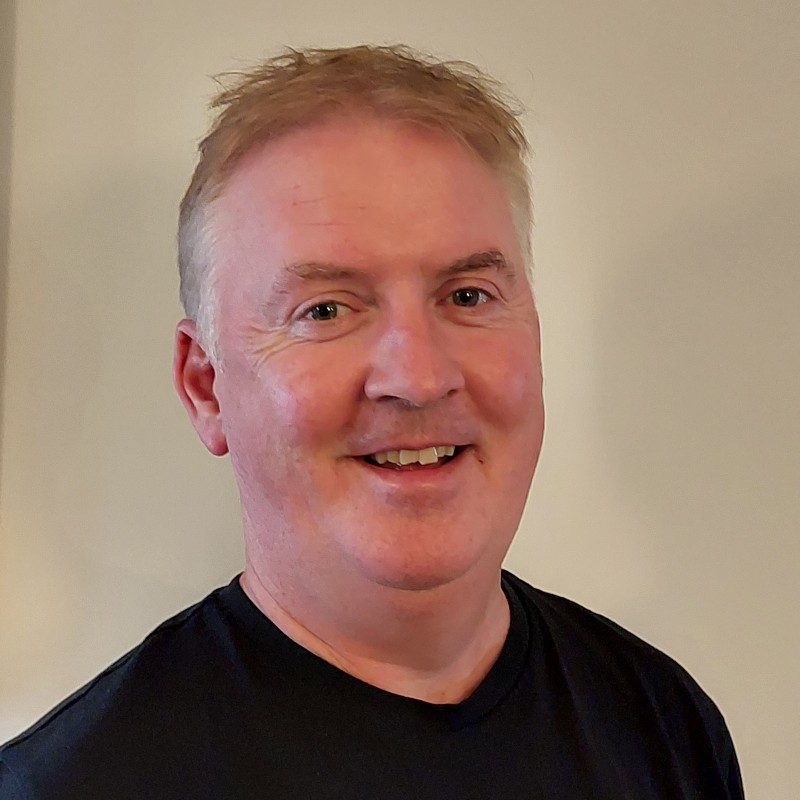
Community Retrofits Ireland
Patrick McHugh
Community Retrofits Ireland is an energy efficiency programme that helps to retrofit fuel-poor homes, offering advice and practical support to vulnerable people, and providing skills and training in retrofitting and renewable technologies for the unemployed.
Fuel-poor homes spend more money heating them. Community Retrofits Ireland helps to make sure these homes are retrofitted to a better energy rating, saving homeowners thousands every year in fuel costs and leading to less energy usage, supporting the move to net zero. They provide pathways for vulnerable people in the community through offering free and practical advice, helping identify the retrofit measures needed for fuel-poor homes, and giving support with form filling and guidance on the grants available.
They also help to create new job opportunities for unemployed and underemployed people, offering training in emerging renewable technologies, as well as retrofitting programmes, developing skilled workers for the retrofit market.
Find out more about Community Retrofits Ireland
Website / Facebook
Community Retrofits Ireland are hoping to help more people through the Changemakers programme. Currently, fuel-poor homes are left with the choice of ‘do I heat my home or put food on the table?’ This is the decision thousands of homes across Ireland must make every day.
Patrick McHugh, Founder of Community Retrofits Ireland
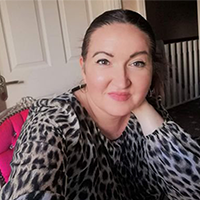
In 2021, we launched our Changemakers Programme with 10 inspiring entrepreneurs, across Ireland and the UK, who focused on financial resilience. As the cost of living crisis continues to affect millions, their work is helping to make a difference – from tackling the poverty premium by supporting low-income households with their bills, to providing long-term employment solutions that give people a reliable income.
Our 2021 Irish-based changemaker: Count On Us Recruitment, Fiona O’Neill
We were thrilled to support Fiona who works to improve financial resilience of family carers with access to employment opportunities, work experience and vital skills.
A carer is someone who looks after a person who needs support because of age, disability or illness (including mental illness). As a carer you cannot be engaged in employment, training or education courses outside the home for more than 18.5 hours a week*, which means caring responsibilities can have an impact on financial resilience.
That’s why Fiona O’Neill created Count On Us Recruitment. As a Family Carer, she recognised the difficulties of regular employment in the modern job market. She told us:
‘My son lives with a number of medical conditions. The level of care he requires means that even if I wanted to, I cannot work full time. I decided I wanted to help people in a similar situation to myself. Then ‘Jobs for Family Carers’ was born.’ The business name later changed to Count On Us Recruitment.
Count On Us Recruitment offers a space for both ends of the jobs market. Carers can look for jobs that work around their commitments, and employers can find employees to fill their vacancies too - ensuring those who provide an invaluable service to society can work and earn too.
Find out more about Count On Us Recruitment
Website / Facebook / Twitter / LinkedIn / Instagram
How it works
Working with our partner, the School for Social Entrepreneurs we develop, and invest in bold ideas and sustainable solutions from ambitious social enterprises across the UK and Ireland.
Participants on this programme will get:
- Two years of support: Including expert consultancy and learning sessions with other social entrepreneurs in the same sector.
- Grants and funding: A grant to support business development.
- Unique opportunities: The chance to work with Royal London Ireland and its parent-company Royal London on building resilience for more people facing life shocks and enabling solutions for a Just Transition.
The School for Social Entrepreneurs (SSE) recognise they can’t fix issues like poverty, climate change and ill-health alone. That is why they exist, to help 1,000 leaders of social change each year to develop the skills, strengths and networks they need to tackle society’s biggest problems.
In turn, the leaders they support help millions of people in need while creating meaningful jobs – often for the most disadvantaged in the labour market. SSE run programmes that equip people to start, scale and strengthen social enterprises and organisations that make a positive difference. But they’re not a traditional school - learning with SSE is inspiring, action-based and accessible.
Their programmes are highly tailored to the specific needs of participating organisations, offering a blend of learning, funding and mentoring.
A social enterprise is a business that puts the interests of people and the planet first. They want to change the world for the better. Like a conventional business, a social enterprise aims to make a profit – the difference is, they’ll drive the majority of their profits towards their social mission.
Social innovation is the process of creating and implementing new and better ways to meet social needs and solve social problems. While business innovations are often designed to profit the organisation, the ultimate goal of social innovation is to further social progress.
The School for Social Entrepreneurs (SSE) recognise they can’t fix issues like poverty, climate change and ill-health alone. That is why they exist, to help 1,000 leaders of social change each year to develop the skills, strengths and networks they need to tackle society’s biggest problems.
In turn, the leaders they support help millions of people in need while creating meaningful jobs – often for the most disadvantaged in the labour market. SSE run programmes that equip people to start, scale and strengthen social enterprises and organisations that make a positive difference. But they’re not a traditional school - learning with SSE is inspiring, action-based and accessible.
Their programmes are highly tailored to the specific needs of participating organisations, offering a blend of learning, funding and mentoring.
A social enterprise is a business that puts the interests of people and the planet first. They want to change the world for the better. Like a conventional business, a social enterprise aims to make a profit – the difference is, they’ll drive the majority of their profits towards their social mission.
Social innovation is the process of creating and implementing new and better ways to meet social needs and solve social problems. While business innovations are often designed to profit the organisation, the ultimate goal of social innovation is to further social progress.
It's everyone's business
Royal London is a purpose-driven modern company with a mutual mindset, and this is reflected in the strengths we have across our business.

